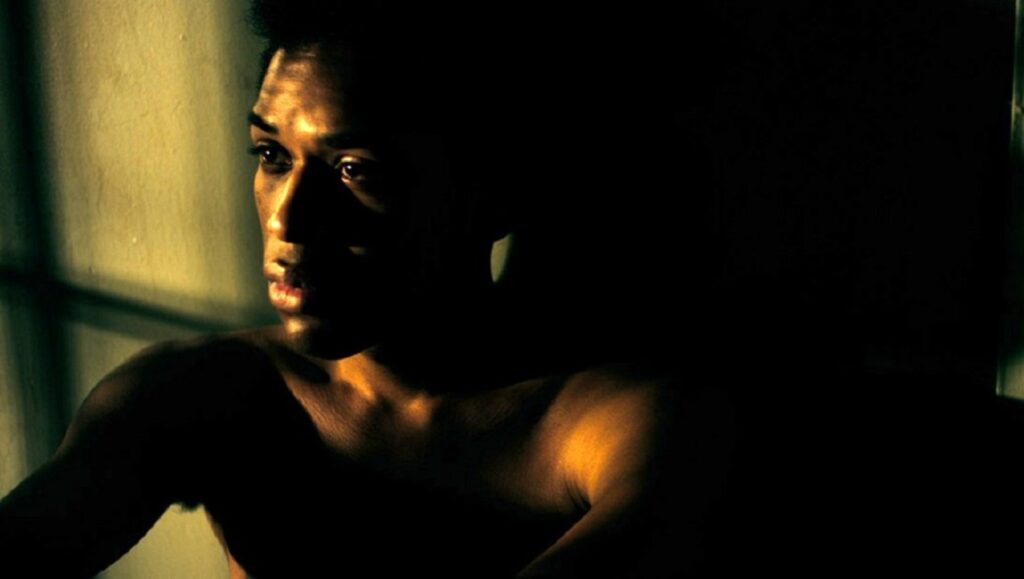Monster is a messy, crude, and politically flaccid throwaway flick that probably should have just stayed on the shelf.
Premiering at Sundance in 2018 to no real buzz, Anthony Mandler’s Monster proceeded to sit on the shelf for several years before Netflix plucked it from purgatory, making it available on their platform at the end of the week. The sudden change of heart has nothing to do with the film’s quality (awful) and everything to do with the fact that Monster boasts a pretty fun cast of notable actors, a couple of whom have risen in profile in the years between debut and public availability. Kelvin Harrison Jr. is probably the big draw here in that regard (John David Washington too, depending how you feel), having gone on to star in Luce and Waves since wrapping this production, with a feverishly anticipated guest stint on the second season of Euphoria not far off. Still, it’s hard to imagine Harrison (who probably still technically qualifies as “up and coming”) being enough of a draw to balance out this film’s shallow political perspective and deeply stupid screenplay.
Based on a much acclaimed, 1999 YA novel by Walter Dean Myers, Monster follows the murder trial of Harrison’s Steve Harmon, the narrative hopping back and forth through time to peel back layers on the accused and the events leading up to the night of the crime. Turns out Steve is a Harlem high school student with good grades and wealthy, supportive parents (Jeffrey Wright and Jennifer Hudson in super thankless parent roles), on his way to some prestigious film program or another. But, looking to prove his worldliness and possibly glean some inspiration for a screenplay, Steve starts hanging around a criminally-inclined guy from the neighborhood, William King (A$AP Rocky), who will eventually perpetrate the crime that he’s on trial as an accomplice for.
Monster imagines itself to be profound, drawing literal parallels to Akira Kurosawa’s Rashomon (its screened for Steve and his friends at an after-school film club run by Tim Blake Nelson) early on as a way of calling attention to its own thematic intent — the multi-faceted nature of truth, and so on — but the screenplay feels clipped and unfocused, never able to present a new angle to the story that actually complicates our perception of the main character in any meaningful way. The script is also oddly trepidatious about discussing race in a meaningful, systemic way, addressing it only in the context of jury biases, dancing around discourse that might indict the racist police state, while reinforcing conservative respectability tropes (the title alludes to the way in which Steve is able to psychologically disengage himself from his involvement with the A$AP Rocky character). Director Anthony Mandler is mostly known as a music video director who’s gone feature-length successfully a couple times, with projects like the Jonas Brothers’ Jonas Brothers Happiness Begins Tour concert film and Lana Del Rey’s Tropico, none of which suggests he should have taken on material this loaded (Monster is also strangely careful about critiquing the prison system too harshly). Messy, crude, but occasionally featuring a face you know, Monster makes sense as streaming catalog filler, but there was no particularly good reason to dust this one off again.
You can stream Anthony Mandler’s Monster on Netflix beginning on May 7.


Comments are closed.